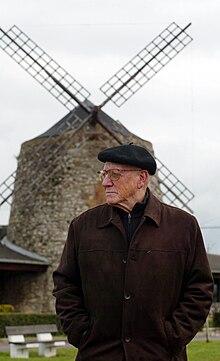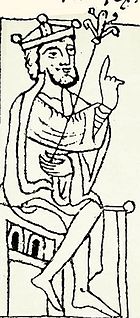
Ramiro I was the first King of Aragon from 1035 until his death, although he is sometimes described as a petty king. He would expand the nascent Kingdom of Aragon through his acquisition of territories, such as Sobrarbe and Ribagorza, and the city of Sangüesa. Sancho Ramírez, his son and successor, was King of Aragon, but also became King of Pamplona.

Miguel de Unamuno y Jugo was a Spanish essayist, novelist, poet, playwright, philosopher, professor of Greek and Classics, and later rector at the University of Salamanca.

The Kingdom of Aragon was a medieval and early modern kingdom on the Iberian Peninsula, corresponding to the modern-day autonomous community of Aragon, in Spain. It should not be confused with the larger Crown of Aragon, which also included other territories — the Principality of Catalonia, the Kingdom of Valencia, the Kingdom of Majorca, and other possessions that are now part of France, Italy, and Greece — that were also under the rule of the King of Aragon, but were administered separately from the Kingdom of Aragon.

The Kingdom of Navarre, originally the Kingdom of Pamplona, was a Basque kingdom that occupied lands on both sides of the western Pyrenees, alongside the Atlantic Ocean between present-day Spain and France.

Pío Baroja y Nessi was a Spanish writer, one of the key novelists of the Generation of '98. He was a member of an illustrious family. His brother Ricardo was a painter, writer and engraver, and his nephew Julio Caro Baroja, son of his younger sister Carmen, was a well-known anthropologist.

García Ramírez, sometimes García IV, V, VI or VII, called the Restorer, was the King of Navarre (Pamplona) from 1134. The election of García Ramírez restored the independence of the Navarrese kingdom after 58 years of political union with the Kingdom of Aragon. After some initial conflict he would align himself with king Alfonso VII of León and Castile, and as his ally take part in the Reconquista.
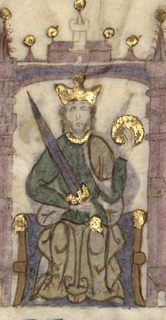
García Sánchez III, nicknamed García from Nájera was King of Pamplona from 1034 until his death. He was also Count of Álava and had under his personal control part of the County of Castile. As the eldest son of Sancho III he inherited the dynastic rights over the crown of Pamplona, becoming feudal overlord over two of his brothers: Ramiro, who was given lands that would serve as the basis for the Kingdom of Aragón; and Gonzalo, who received the counties of Sobrarbe and Ribagorza. Likewise, he had some claim to suzerainty over his brother Ferdinand, who under their father had served as Count of Castile, nominally subject to the Kingdom of León but brought under the personal control of Sancho III.

Aibar is a town located in the province of Navarre, in the autonomous community of Navarre, northern Spain.

Ramiro Ledesma Ramos was a Spanish philosopher, politician, writer, essayist, and journalist, known as one of the pioneers in the introduction of Fascism in Spain.

Mauricio Ricardo Pinilla Ferrera is a Chilean former professional footballer who played as a striker.

Ramón Otero Pedrayo was a Galician geographer, writer and intellectual. He was a key member of the Galician cultural and political movement Xeración Nós.
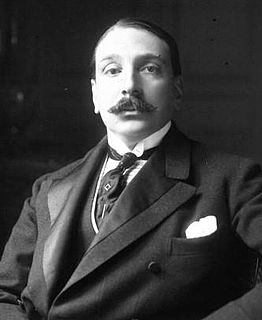
Enrique Rodríguez Larreta was an Argentine writer, academic, diplomat and art collector. He was nominated for the Nobel Prize in Literature ten times.

Ramiro Arrue y Valle, generally known as Ramiro Arrue was a Basque painter, illustrator, and ceramist, of Spanish nationality, who devoted his work to the Basque Country.
Joseph Peyré was a French writer. He won the Prix Goncourt in 1935 for Sang et Lumières.
The National Literature Prize for Narrative is a prize awarded by Spain's Ministry of Culture for a novel written by a Spanish author in any of the languages of Spain. The prize is 20,000 euros.

Joxe Azurmendi Otaegi is a Basque writer, philosopher, essayist and poet. He has published numerous articles and books on ethics, politics, the philosophy of language, technique, Basque literature and philosophy in general.
Ramiro Guerra Pereyra is an Uruguayan footballer who plays for Spanish club Villarreal CF as a central midfielder.
Aitor González Luna, professionally known as Aitor Luna, is a Spanish actor. He earned early public recognition in Spain for his performance in Los hombres de Paco. He has since featured in series such as Gran Reserva, Las aventuras del capitán Alatriste or Cathedral of the Sea.

The Lan Onari award is a civil medal awarded in the Basque Country, Spain. It is awarded by the Basque Government to Basques "who have extraordinarily distinguished themselves due to their dedication, constancy, and innovative spirit in their field of work". It is the second highest distinction awarded by the Basque Government.
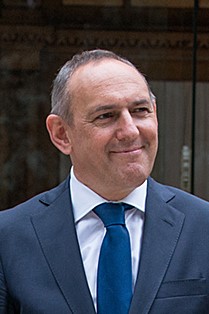
Ramiro González Vicente is a Spanish politician. A member of the Basque Nationalist Party, he has served as Deputy General of Álava since 2015.
